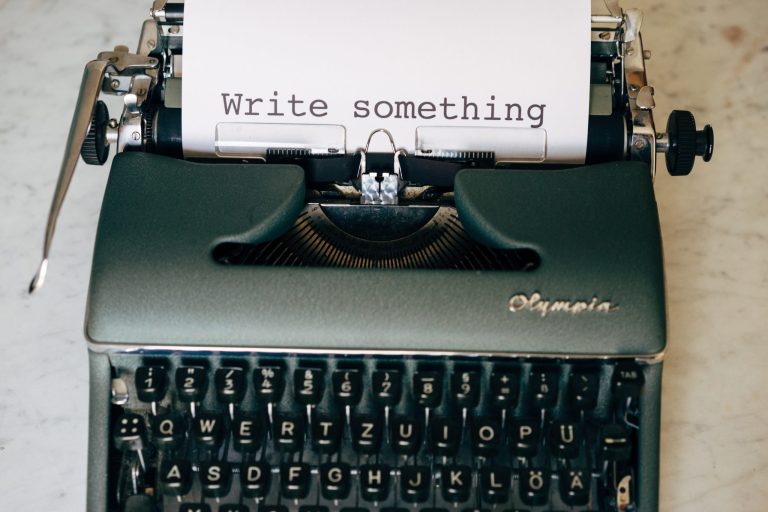5 Submission Tips from an Editorial Reader
Today’s guest post is by Charlotte Oakeby.
In order to further my own literary skills, I recently decided to dip my toe into the metaphorical waters of editorial reading. And, as a seventeen-year-old, I was hoping to provide an alternative perspective when it came to selecting submissions for publication. It’s a huge responsibility—of that I’m well aware.
Already I’ve managed to source some tricks and store them up my sleeve. I thought it would be rude to keep them under lock and key, considering that I know the struggles of submitting only too well.
So, here’s my gift to you: five submission tips from an editorial reader.
- Know When to Tame an Incredibly Wild Imagination
I was given a warning by one of the magazine’s editors beforehand. And, as it turns out, that warning was necessary.
I was expecting to encounter some diverse subject matter, and that’s what enticed me the most. Being mainly concerned with crime fiction, I was eager to escape my box of literary confinement and expose myself to a multitude of genres I’d never stumbled across before.
I could never have prepared myself for what was about to hit me.
I’m impressed by many pieces, of course, and some manuscripts are truly worthy of being Hollywood blockbusters. Every fifteen minutes, I’m thrown into a different time period on a different planet in a different universe, and it’s an overwhelming experience. There are occasions, however, when I have to take myself out of a story for one brief moment, look blankly at the wall in front of me, and ask myself, How on God’s green earth did they think of this?
These certain stories tell of murders, graphic violence, and other full-on hard-hitting topics, all of which just don’t go well with a Sunday morning and cup of vanilla coffee. I’m not lying when I say that one war-zone piece was so sickening and disturbing, I had to sit and practice a breathing technique.
Perhaps it’s the fact these pieces tend to be written so well that they hit the hardest. They seem utterly believable, and it’s a shame when someone’s talent has to be rejected simply because of subject matter.
I strongly believe that writing is a way of expression like no other, and you should craft what you want, just how you want it. When it comes to submitting to literary journals, though, there has to be some give and take. All publications have their rules, and when sending in your piece, you need to make sure its contents are palatable and follow regulations.
You could seek out journals that will welcome your tricky topics, but always do your research beforehand. And if you doubt your proposed topic is suitable for the majority of readers, consider whether it’s worth writing.
- Avoid Using Stereotypes
Stereotypes can make or break a submission and can cause a submission to be pulled out the slush pile and tossed in the rejection bin instead.
Considering the magazine I read for is American, the website we work from is American, and the majority of submitters are American, everything I’m surrounded by is more or less American.
As an English girl through and through, anything remotely British stands out—our idioms, apparent crumpet-eating habits, and politeness make frequent appearances. Admittedly, the British stereotypes that international writers throw into their work have a tendency to make me giggle. One piece of short fiction I read was based in a London café and showcased a sentence that said something along the lines of “grab the cups of tea, bruv.”
Now, there’s nothing wrong with this assuming style of writing, and it’s true—we Brits do like our tea. However, including overly used tropes lacks originality and will ultimately set your submission back.
As a reader, I look for work that has that click: the point where the plot is completely spun on its head and I’m so surprised that my heart drops. Due to the sheer amount of reading we do, readers can sometimes predict the ending before we’ve even got a grip on the story. I’ll often ask myself, Did I get it right? It’s like a little game.
Traditional stereotypes and those typical boy-meets-girl tales have been written countless of times; this doesn’t diminish the talent of those who write them, but it does take away from their impact. We’re searching for work with elements of uniqueness and authenticity, and the last thing you’d want to do is offend someone because of a prehistoric belief.
- For God’s Sake, Just Follow the Guidelines
The majority of literary magazines read their submissions blind, so you’ll have to rely on your quality of writing and formatting alone to secure that publication. It frustrates me how often the guidelines are overlooked. I cannot stress how important first impressions are.
As a writer and also a reader, I can understand both sides of the argument. Whenever a manuscript of mine is ready to go, I wish I could toss it into every publication’s hands as if I was doing the local paper round. We know submitters want a lightning-quick process, but cutting corners will only go against you.
The vast majority of readers are simply volunteers, making it even more important that you pay them the highest level of respect possible. It’s not seen as laziness, as such, but ignoring guidelines suggests a lack of genuine interest for the magazine and the rules they’ve kindly asked you to follow.
Some journals won’t stand for this, and I’ll tell you that for free. If you include personal details on your manuscript when asked otherwise, there’s a strong chance it’ll get flat-out rejected before anyone’s even read the first word. It’s harsh but understandable.
Reading blind is difficult enough—as a curious (alright, nosey) person, of course I’m intrigued about a submitter’s identity. This wouldn’t be fair, though, and you’d get some readers gravitating towards specific submissions without even realising they’re doing it. I occasionally come across someone who has included practically every ounce of information about themselves, from their address to their phone number to their date of birth. They may as well have told me their shoe size.
To avoid irritating your readers, just follow the rules, for crying out loud!
- Whatever You Do, Don’t Take Rejection Personally
When I first started submitting work and those inevitable rejection emails began trickling into my in-box, I felt as if the publications were personally slapping me across the face. It hurt every time. Being told no is never nice, especially when you’re as stubborn as I am.
Then, when I first started reading work, I thought it’d be impossible to reject any piece. I’d like to think I’m an open-minded and generous person, but I’ve been surprised by how little has actually engaged me. Don’t get me wrong—every single piece I read is wonderful, and I’m very lucky to be in this position. It’ll always feel cheeky, considering I’m so early on in the stages of my own writing journey. But, most of the time, turning a piece down is not personal.
Whenever I suggest a rejection, it’s normally due to minor details. This could be punctuation, grammar, rhythm, story length, or subject matter, as I mentioned before. Or, we could already have accepted a very similar submission. It doesn’t mean the writing is poor by any means; there’s just a specific taste and style that my magazine accepts, and all readers have to go by that.
So, if you get sent an “unfortunate” rejection letter, don’t label it as unfortunate whatsoever. Use it as fuel to fire your motivation. Keep writing and submitting and writing and submitting, and you’re bound to get there one day. Just because your piece wasn’t right for one publication, does not mean it won’t be right for the next ten.
- If You Want To Publish More, Read More
Being a reader has to be one of the most rewarding things I’ve done so far. Not only have my writing techniques developed, but I’m brimming with ideas. Even one single word can spark something, setting off my imagination and letting it run wild. Being exposed to so many genres has allowed me to identify qualities I do like and those I don’t. I understand what it is publications are looking for, and I use these tips when submitting my own fiction.
So, I’d urge you all to do some light research, send in your CV and land yourself a reading job. You really won’t know unless you try, and it could bridge the gap between your current position in the literary world and where you’d love to be. Go for it!
 Charlotte L Oakeby is a seventeen-year-old fiction and freelance writer from the United Kingdom, with a passion for languages and literature. Her love for writing began when she was thirteen, after cancer stole her father. Her work has been published in multiple overseas publications, including the Cosumnes River Journal, the Gordon Square Review and The Daily Positive. She was awarded a GSR Editorial Mentorship and is a reader for the award-winning magazine 805 Lit. You can find her on Twitter or Instagram (@charli_oakebyxo).
Charlotte L Oakeby is a seventeen-year-old fiction and freelance writer from the United Kingdom, with a passion for languages and literature. Her love for writing began when she was thirteen, after cancer stole her father. Her work has been published in multiple overseas publications, including the Cosumnes River Journal, the Gordon Square Review and The Daily Positive. She was awarded a GSR Editorial Mentorship and is a reader for the award-winning magazine 805 Lit. You can find her on Twitter or Instagram (@charli_oakebyxo).










Excellent suggestions, Charlotte. And I applaud you, at such a young age, for going forward with your passion to be a writer / reader.
Hi! Thank you so much for your lovely words! I’ve always adored writing; I appreciate your support so much.
This was a very insightful message.
Thanks so much for your kind comments!